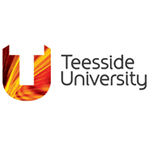
About the course
Course overview
Cybersecurity relates to the technologies, processes and controls that are designed to protect systems, networks and data from cyber attacks. Graduates who understand the practices that underpin secure computer systems are in great and ever-growing demand. Our MSc Cybersecurity gives you a critical understanding of information governance and assurance, combined with technology risk management practices. You learn how to explore the threat landscape and develop countermeasures for cybersecurity attacks. You also study security for the Internet of Things (IoT) and the security concepts and technologies used in mobile devices.
You work in industry standard network studios that have an isolated network to use to support your learning. Studios also have a dedicated server room, enabling you to test the level of security on the networks you build.This course not only covers technical skill development, it also identifies the issues surrounding the often neglected weakest link in security systems – people. You explore a range of topics from Hacking the Human, IT Ethics and Law, through to IoT, Mobile and Systems Security. You develop tyour understanding of technology, cryptography, infrastructure, and the human impact on security.
There are three routes you can choose from to gain an MSc Cybersecurity:
- full-time - 2 years with advanced practice (September and January start)
- full-time - 1 year (September start) or 16 months (January start)
- part-time - 2 years.
How you learn
You learn about concepts and methods primarily through keynote lectures and tutorials using case studies and examples. Lectures include presentations from guest speakers from industry. Critical reflection is key to successful problem solving and essential to the creative process. You develop your own reflective practice at an advanced level, then test and assess your solutions against criteria that you develop in the light of your research.
How you are assessed
The programme assessment strategy has been designed to assess your subject specific knowledge, cognitive and intellectual skills and transferable skills applicable to the workplace. The strategy ensures that you are provided with formative assessment opportunities throughout the programme which support your summative assessments. The assessments will include assignments, tests, case studies, presentations, research proposal and literature review, and the production of a dissertation. The assessments may include individual or group essays or reports. The assessment criteria, where appropriate, will include assessment of presentation skills and report writing.
Entry requirements
You will normally have a first degree in related discipline (2.2 minimum) or relevant experience or equivalent qualifications.
In addition, international students will require IELTS 6.0 or equivalent.
For additional information please see our entry requirements
International applicants can find out what qualifications they need by visiting Your Country
Career opportunities
We prepare you for a career in industry. In addition to your taught classes, we create opportunities for you to meet and network with our industry partners through events such as our ExpoSeries, which showcases student work to industry. ExpoTees is the pinnacle of the ExpoSeries with over 100 businesses from across the UK coming to the campus to meet our exceptional students, with a view to recruitment.
Graduates can expect to find employment in one of the increasing number of sectors needing data science specialists, such as the defence industry, financial industry, telecommunications, and health sector.